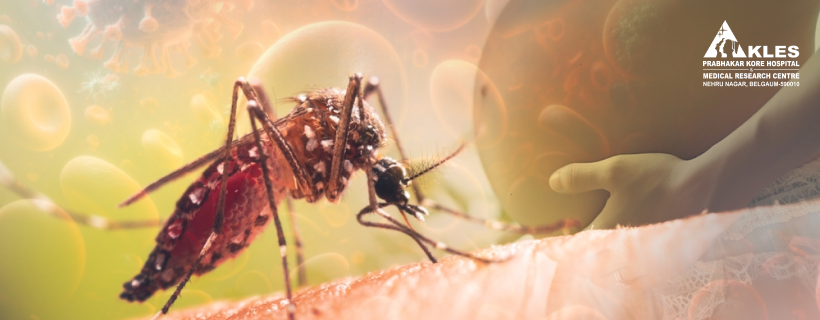

Medically Reviewed by Dr. Ankitha Teja Narayan, Internal Medicine
Written by KIE Editorial Contributors
3.5 min read | Last Updated: 01 August 2025 | Published On: 26 August 2023
Fever, rash, and joint pain are signs of Zika Virus infection. This mosquito-borne illness has raised global concern due to its impact on adults and unborn babies. If you’re travelling to tropical regions or experiencing unusual flu-like symptoms, it may be the early signs of Zika, and taking the necessary steps for protection is crucial. It covers how Zika spreads, its symptoms, treatments, and proven prevention methods to safeguard you and your family.
This mosquito-borne illness has raised global concern due to its impact on adults and unborn babies. Zika virus in adults usually causes mild symptoms, but in some cases, it can lead to complications like Guillain-Barré syndrome.
Zika Virus is a mosquito-borne viral infection caused by the Flavivirus genus. It was first identified in Uganda in 1947 and has since caused outbreaks in Africa, Southeast Asia, and the Americas. The infection is primarily linked to the Zika virus, which is caused by mosquito bites from Aedes aegypti and Aedes albopictus. Although many cases are mild, Zika gained attention due to its association with genetic disabilities, especially microcephaly in newborns.
Symptoms usually appear 3–14 days after exposure and may persist for up to a week. Some people experience asymptomatic infection.
Meaning they never develop noticeable Zika virus symptoms, but can still transmit the virus.
The most common Zika virus causes include bites from infected Aedes mosquitoes, which are active during the day. Additional causes and transmission routes include:
The virus is not spread through casual contact, such as hugging or sharing food.
Diagnosing the Zika Virus requires clinical evaluation and laboratory confirmation:
Early test results are crucial for pregnant women to prevent complications in the baby.
Zika primarily spreads through bites from infected Aedes mosquitoes. Other modes include sexual transmission, blood transfusion, and from mother to fetus during pregnancy. The virus is most contagious in the first week of infection. Avoiding mosquito-prone areas and using repellents can significantly reduce the risk of Zika virus transmission bites.
Currently, there is no specific antiviral treatment for the Zika virus. Management of supportive care:
Patients with severe illness or high-risk conditions should seek medical care immediately.
Prevention is the most effective strategy since vaccines are still under research. Key steps include:
The practices are vital for preventing the Zika virus and protecting against complications, such as risks to pregnancy associated with the Zika virus.
Pregnant women are at the highest risk due to the possibility of congenital Zika Syndrome and microcephaly in newborns.
Zika virus pregnancy complications include a high risk of congenital Zika Syndrome and microcephaly in newborns.
Get in Touch with a Doctor
Most infections clear within 1–2 weeks, but the virus can persist longer in body fluids such as semen. People are advised to follow medical guidance on sexual precautions after infection.
Yes, in most cases, Zika Virus symptoms resolve on their own within a week or two without any specific treatment.
Yes, most people fully recover from the Zika Virus without long-term health issues. Severe complications are rare but can occur in newborns and people with neurological conditions.
For most adults, effects are temporary. However, babies infected during pregnancy may face lifelong neurological and developmental challenges, such as microcephaly.
No, only certain species of Aedes mosquitoes, mainly Aedes aegypti and Aedes albopictus, are capable of transmitting the Zika Virus.